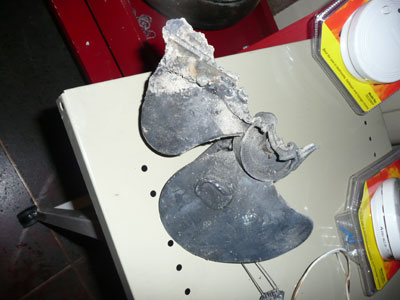
Summary
|
24/06/2009

24 June 2009 Winter Warning on Deadly FiresArchicentre, the building advisory service of the Australian Institute of Architects, today warned that most fatal fires occur in the home and winter is a high fire risk time. A faulty electrical appliance or washing left too close to a heater could have disastrous consequences by exposing family members to death or injuries and causing major structural damage to a property.
"Many homes damaged or destroyed by fire don't have working smoke alarms. In some cases fire authorities have reported the batteries have been removed from the smoke alarm rendering them inoperable." Mr Cook said many families owe their lives to working smoke alarms as you can't smell smoke when you are asleep. A small fire can grow to involve an entire room in two - three minutes. Smoke alarms are an essential early-warning system to alert you and your family to the dangers of fire and smoke and allow time to escape. Research by Australasian Fire Authorities Council (AFAC) found that the absence of a smoke alarm can increase the possibility of a fatality by 60%. Mr Cook said that it is important once you have an alarm you ensure it is in working order. You should test it weekly by pushing the test button with a broom handle to make sure it beeps; vacuum smoke alarms monthly to clean the vents and replace the battery annually at the end of daylight saving with a long-life alkaline battery. "Smoke alarms don't last forever and usually have a life span of about ten years. If your alarm is older than this the Fire Authorities recommend it be replaced. The Fire Authorities have reported that nearly one third of all victims in fatal house fires are seniors. Seniors are more likely to be injured or killed in a house fire than any other group. Mr Cook said "older adults are considered a high risk group in fire. Some medications decrease their mobility and hearing which can reduce the ability to detect and escape from fire. Impairments can make it difficult for some people to respond quickly to a developing fire. Living alone can also increase their vulnerability to fire." Remember: in a fire, every second counts. Don't stop to pick up possessions or call the fire brigade. Your only priority is to get out. Call 000 from your neighbour's phone. ARCHICENTRE FIRE SAFETY CHECK LIST 1. Correctly
install appropriate Smoke Alarms into effective locations. 2. Never leave
the room when cooking or oil is being heated on the stove. If you throw water
on a burning fat or oil fire, it will cause an explosive reaction. Put a lid
over a burning pan or use a fire extinguisher or fire blanket. 3. Prepare
and practise an evacuation plan with an escape route, include door keys. 4. Install
lever handle latch on doors for quick exit without keys. Install deadlocks that
can be opened from the inside without keys. 5. Clean the
exhaust fan grill over the stove to remove fire fuel fats and grease. 6. Tidy up
- remove if possible all extension leads. Do not run electrical leads under
carpets or rugs. 7. Unplug appliances
when not in use and if possible have appliances checked annually by a licensed
electrician. 8. Have your heating units and ducted heating systems professionally serviced prior to winter use. 9. Install a Safety Switch on power and light circuits. 10. Never leave children alone around heating and cooking appliances and keep lighters and matches out of reach. 11. Take extra care with naked flames particularly the use of candles, and oil burners for essential oils and incense. 12. Don't smoke in bed. Ensure cigarette ash and butts are extinguished. 13. Use free
standing space heaters with extreme care. With an open fire ensure logs in fireplaces have burnt down before you go to bed. Use a heavy duty fire screen in front of fireplace to prevent sparks and burning logs rolling out of the fire onto the floor igniting the floor or carpet. Ensure the fire screen can't be tipped over if a burning log rolls out. Consider installing a wire fire screen or curtain within the fireplace. Media Enquiries:
|
|||||
|
|
|||||
PO Box 2412, Kew, Victoria, Australia. 3101
Tel: +61 03 9818 5700 Fax: +61 03 9818 5044
Email:newsdesk@medialaunch.com.auCopyright/Legal
